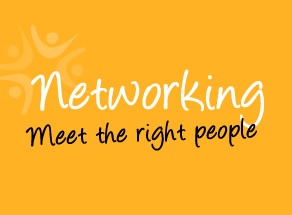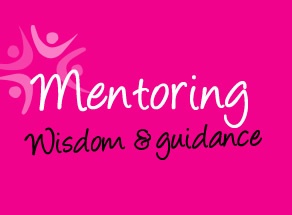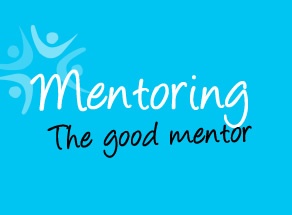
Ramon Diaz Turned His Struggles with Language and Family Financials into a Career Opportunity
05/02/2016 11:09PM | 7056 viewsWritten by Michael O'Neill
Ramon Diaz and his younger brother grew up in Long Beach,California, but they were born in their parents’ hometown of Jalisco, Mexico. Though both parents had been in the U.S. since the early 1970s, they made frequent trips south of the border, including for the birth of their sons. But they knew they couldn’t stay there, if they wanted a better life for them. It was a land where most people were farmers and had no options for lifting themselves out of poverty.
Not that life in the U.S. was easy. With little education, Ramon’s parents were limited to factory jobs and other manual labor. But they were determined that their sons would get an education, and once of age they were off to Kindergarten in Lakewood – a 15-20 minute bus ride from their house but to a school district that was in a safer neighborhood.
It was at school that Ramon was first exposed to the English language. Learning English proved especially difficult – and he soon realized it was because he hadn’t really learned to speak proper Spanish at home, due to his parents inability to read and write their native language.
“I hear how my daughter speaks both English and Spanish today,” says Ramon, “and it’s so different from how I used to speak. When I was growing up my vocabulary was very limited, even in Spanish. But we read books to her, and we correct her when she speaks incorrectly. So she’s much more advanced than I was when I went to school, even though she’s only four.”
What his parents did give him was the ability to overcome the language – and any other barrier – to advancement. They pushed Ramon and his brother to learn to speak properly – in both English and Spanish; to go to school and get a good education, so that they could have a better life and break the cycle of manual, backbreaking labor.
Ramon knew that he had to make something of himself to justify all of their sacrifices. Though his parents were strict when it came to getting an education, they couldn’t tell him how to make it beyond that. But they did instill in him the values that he would need to succeed: work hard and do a good job at whatever it is; be respectful of others; and learn as much as you can because an education is the key to a better life.
In high school, Ramon was “not a great student, but an ok student.” Though he wanted to do better in school, he was torn by his responsibility to work and help pay the bills. He and his brother would do odd jobs throughout their high school years, and because Ramon didn’t have the grades for a four-year university, he set his sights on community college.
He got in with the financial help that he applied for, but started at the bottom with the easiest classes he could take. Even so, his grades remained low, while he continued to work at the same time. He eventually would start from scratch, taking all of his classes over again to get his GPA up so that he could transfer to a university.
Around this time, Ramon started to think about going into finance as a career.
“I had a customer service job at Bank of America, where I was learning how the banking system works, and I was playing more and more of a financial role in my family, trying to pay the bills, get us out of debt, and be more responsible with money,” he explains. “At school, I was doing really well in economics and my other business classes, and I decided to make that my major.”
Knowing he also needed to expand his language skills, Ramon added communications classes to his course load.
He continues: “Whenever I spoke to people that were successful, I noticed they were always well-versed and could communicate their ideas very clearly. I knew I had a lot of things I wanted to say, and I had to learn how to better express myself, so when I transferred to Cal State Long Beach, I joined a lot of social activities, clubs and fraternities – anything that would expose me to different people, new learning experiences and opportunities to practice my speaking skills.”
Though it would have been easier to focus full-time on his studies while he pursued his Bachelor’s degree, Ramon continued to work to pay for what financial aid did not cover, and to continue helping out his family.
The desire to help people was also something that went beyond his immediate family, and he would soon be seeking out opportunities to do so after he graduated. It was why he approached Kaiser Permanente at a career fair, the company that would give him his first job as an underwriter, and where he would spend the next nine years.
“They were restructuring the whole underwriter department at Kaiser Permanente and hiring a lot of college graduates,” says Ramon. “I was fortunate to find something where I felt like I fit in, because there were a lot of us the same age and we were all learning the rating system there at the same time. The company also had a mission I believed in – focusing on preventative care, helping the communities they serve, and being inclusive – all of which made me feel really comfortable working there.”
When healthcare reform came along, Ramon anticipated the changes that would be coming with it. He did some research and saw the writing on the wall. Underwriting would not be the best career path to continue on, but the skills he had learned would transfer well to a new role as financial analyst.
It proved to be a wise decision. He learned the ropes of being a financial analyst at Kaiser, and within a year, an opportunity arose at City of Hope Medical Foundation, where he now works as a financial analyst, again working with a new team all learning a new system at the same time. And where he also believes in the mission: giving people hope through the miracle of science with soul.
In part two of this article, Ramon will share his career advice learned along the way – first as a mentee, and today as a mentor.






Post your Comment
Please login or sign up to comment
Comments